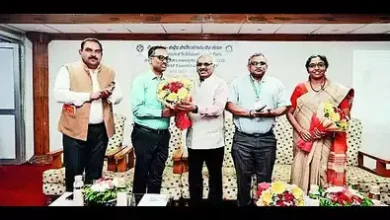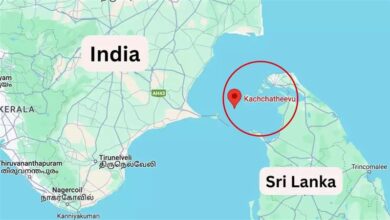AICTE to Create 11 “Innovation” Centers to Work on Projects for the Indian Knowledge System
The All India Council for Technical Education (AICTE) intends to establish eleven such centers across the nation to carry out Indian Knowledge System (IKS) projects, which are a cornerstone of the Center’s new education policy, moving beyond innovation to what has been dubbed “indovation.”
As their primary job has been digitalized and is now managed from the headquarters, the eleven centers will be replacing the now-closed council’s regional offices, which until recently oversaw the approval process for higher education institutions in those regions.
The eleven cities where the innovation centers would be located are: Guwahati, Kanpur, Bhopal, Bengaluru, Trivandrum, Hyderabad, Chennai, Chandigarh, Jaipur, Baroda, and Kolkata. According to a senior official, these cells will do research for IKS initiatives including confirming ideas from antiquity, examining antiquated writings, and translating, among other things.
The regional offices, which were utilized for innovation and incubation, were shut down this year. The official said, “Innovation under IKS will now be the key emphasis at these centers.
The strategy is in keeping with National Education Policy (NEP) 2020, which places a strong focus on integrating Indian knowledge in curricula for higher education. The same year, the IKS division under AICTE was created for this purpose by the Union Ministry of Education (MoE).
In accordance with IKS recommendations published by the University Grants Commission (UGC) earlier this year, all educational levels must promote research and instruction by creating and offering new undergraduate and graduate-level courses.
The National Credit Framework (NCrF) now grants students credit for knowledge of the Vedas, Puranas, and other ancient Indian writings, according to the IKS rules that were published in April. The framework’s rules must be followed by all institutions of higher learning in the nation.
IKS can now be “creditised” under the NCrF on par with other types of work, including social work with a high impact or in priority areas, performing arts (dance, Indian classical music), games and sports (Olympics, federation games, Asian Games, etc.), and performing arts.
The IKS tradition lists 64 kalas, or applied sciences or occupational subjects, and 18 main vidyas, or theoretical disciplines. The four primary vedas, four subsidiary vedas (Ayurveda, Dhanurveda, Gandharvaveda, and Shilpa, which deals with architecture), the Purana, Nyaya, Mimamsa, Dharmsastra, and Vedanga, as well as the six auxiliary sciences of phonetics, grammar, metre, astronomy, ritual, and philology, make up the 18 vidyas. The 18 sciences that existed in ancient India were built on the foundation of all of them.
13 IKS centers have already been established across the nation by the ministry’s higher education division for research and outreach initiatives in a variety of fields, including science, engineering, technology, health and wellness through naturopathy, ayurveda, yoga, psychology, linguistics, phonetics, and epistemology, among others.







